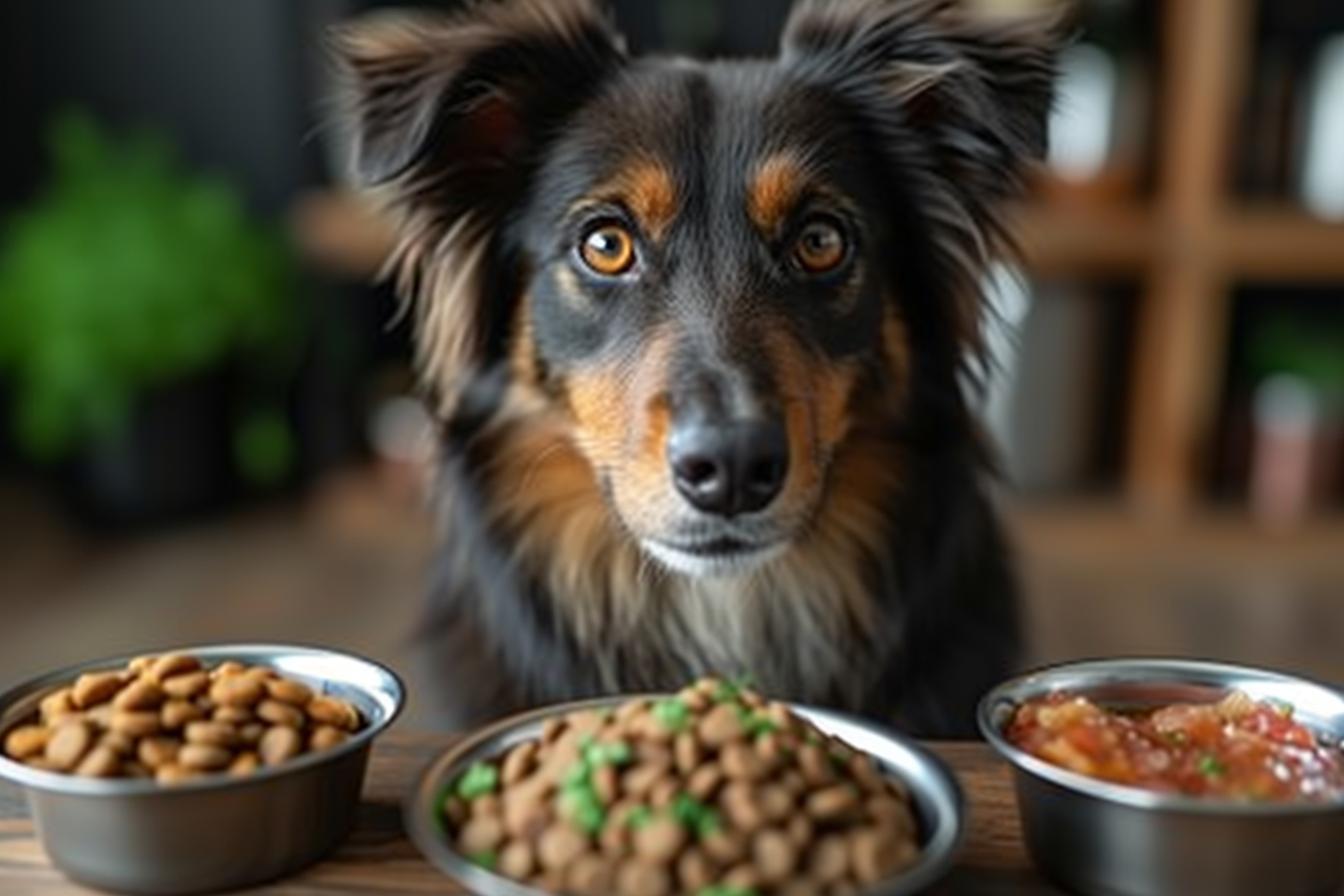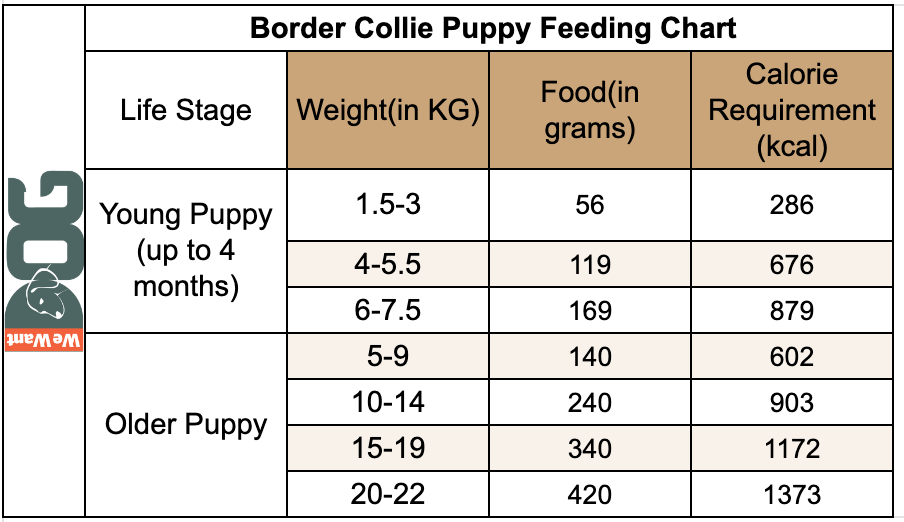Feeding a Border Collie puppy is crucial for their growth and health. They need a balanced diet to thrive and stay active.
Border Collies are known for their intelligence and energy. As puppies, their nutritional needs are unique. A proper diet supports their development and helps them grow strong. It’s important to know what foods are best for them. We will explore the ideal diet for your Border Collie puppy.
We will look at the types of food they need and why. This guide will help you provide the best nutrition for your furry friend. Your puppy’s health and happiness start with what you feed them. Let’s dive into the details.
Nutritional Needs
Understanding the nutritional needs of a Border Collie puppy is vital. Puppies grow fast and need the right nutrients. This ensures they develop strong bones, muscles, and a healthy immune system. Feeding them the right food sets the foundation for a healthy life.
Essential Nutrients
Border Collie puppies need specific nutrients for optimal growth. Here are some essential nutrients:
- Protein: Helps build strong muscles and tissues.
- Fats: Provides energy and supports brain development.
- Vitamins: Vital for immune function and overall health.
- Minerals: Supports bone development and metabolic processes.
- Carbohydrates: Offers energy and aids digestion.
Puppy Vs. Adult Diet
A Border Collie puppy’s diet differs from an adult’s diet. Puppies need more calories and nutrients. They have higher energy levels and faster growth rates. Here’s a comparison:
| Nutrient | Puppy Needs | Adult Needs |
|---|---|---|
| Protein | High (30-35%) | Moderate (18-25%) |
| Fats | High (15-20%) | Moderate (10-15%) |
| Calories | High (more energy) | Moderate (maintenance level) |
| Calcium | Higher (1.2-1.8%) | Lower (0.5-1.0%) |
Puppies need specially formulated food. It meets their unique nutritional needs. An adult dog diet won’t provide enough nutrients for a growing puppy. Proper nutrition ensures your puppy grows into a healthy adult.

Credit: www.reddit.com
Choosing The Right Food
Choosing the right food for your Border Collie puppy is essential. Proper nutrition ensures they grow healthy and strong. It can be confusing to decide what to feed them. Here, we discuss two popular options: commercial puppy food and homemade diets.
Commercial Puppy Food
Commercial puppy food is convenient and easy to use. It comes in two main forms: dry kibble and wet canned food. Dry kibble helps keep your puppy’s teeth clean. Wet food provides extra moisture. Both types usually have balanced nutrients.
- Look for high-quality brands.
- Check the ingredients list.
- Avoid foods with fillers like corn or soy.
Choose a product labeled as “complete and balanced.” This ensures it meets all your puppy’s nutritional needs. You can also ask your vet for recommendations. They can suggest the best brands for your puppy’s age and health.
Homemade Diets
Some owners prefer to prepare homemade diets for their puppies. This gives you control over the ingredients. You can ensure your puppy eats fresh, natural food.
Here are some tips for a balanced homemade diet:
- Include protein sources like chicken, beef, or fish.
- Add vegetables like carrots, peas, and spinach.
- Incorporate carbohydrates like rice or sweet potatoes.
- Chocolate
- Grapes
- Onions and garlic
Consult a vet or a pet nutritionist before starting a homemade diet. They can help you create a balanced meal plan. This ensures your puppy gets all the essential nutrients.
Feeding Schedule
Creating a proper feeding schedule is crucial for your Border Collie puppy’s health. A well-structured schedule helps ensure they get the right nutrients. It also helps with digestion and growth.
Meal Frequency
Border Collie puppies need frequent meals. They have small stomachs but high energy needs. Puppies under 6 months should be fed 3-4 times a day.
- 1-3 months: 4 meals per day
- 3-6 months: 3 meals per day
- After 6 months: 2 meals per day
Stick to a regular feeding time. This helps their body adjust and expect food at certain times. Consistency is key for a balanced diet.
Portion Sizes
Determining portion sizes is crucial. Overfeeding can lead to obesity. Underfeeding can stunt growth. Follow these guidelines:
| Age | Weight (lbs) | Daily Portion (cups) |
|---|---|---|
| 1-3 months | 5-10 lbs | 1-1.5 cups |
| 3-6 months | 10-20 lbs | 1.5-2.5 cups |
| 6-12 months | 20-30 lbs | 2.5-3.5 cups |
Divide the daily portion into the number of meals you feed. For example, if you feed 3 times a day, divide the daily portion by 3.
Monitor your puppy’s weight and adjust portions as needed. Consult with your vet for personalized advice.
Wet Vs. Dry Food
Feeding your Border Collie puppy can be confusing. Choosing between wet and dry food is a common dilemma. Both types have their unique advantages and disadvantages.
Pros And Cons
| Type | Pros | Cons |
|---|---|---|
| Wet Food |
|
|
| Dry Food |
|
|
Mixing Both
Combining wet and dry food can offer the best of both worlds. This method provides moisture and dental benefits. It also keeps meals interesting for your Border Collie puppy.
- Mix a small amount of wet food with dry kibble.
- Ensure the mixture is fresh and well-blended.
- Monitor your puppy’s reaction and adjust as needed.
Feeding a mix can help with picky eaters. It also ensures balanced nutrition. Remember to choose high-quality brands for both wet and dry food.
Introducing New Foods
Introducing new foods to your Border Collie puppy can be an exciting journey. It is essential to ensure that the transition is smooth and gentle. Puppies are sensitive, and their digestive systems need time to adjust to new foods. The right approach will help them adapt without any issues.
Transitioning Tips
Start by mixing a small amount of the new food with their current diet. Gradually increase the new food while decreasing the old one over a week. This gradual change helps prevent stomach upset. Consistency is key. Stick to the same feeding times each day.
Ensure the new food is nutritionally balanced. Border Collie puppies need a diet rich in protein, fat, and essential vitamins. Check the ingredients and consult your vet if needed.
Monitoring Reactions
Observe your puppy closely during the transition. Watch for signs of discomfort, such as vomiting, diarrhea, or excessive gas. These symptoms may indicate that the new food isn’t suitable.
Check your puppy’s energy levels and coat condition. Healthy food should result in a shiny coat and active behavior. If you notice any negative changes, stop the new food and consult your vet.
Keep a feeding diary. Note any reactions to help identify potential food sensitivities or allergies.

Credit: www.feedingmydogbreed.com
Treats And Snacks
Feeding your Border Collie puppy treats and snacks can be a fun and rewarding experience. Treats can help with training and bonding. But it’s important to know which treats are healthy and how to avoid overfeeding. Let’s explore some options and tips.
Healthy Options
Choosing healthy treats for your Border Collie puppy is crucial. Here’s a list of great options:
- Carrots: Low in calories and rich in vitamins.
- Apples: Remove seeds and core before feeding.
- Blueberries: Packed with antioxidants and fiber.
- Sweet Potatoes: High in fiber and vitamins.
- Small Pieces of Cooked Meat: Ensure it’s plain and unseasoned.
These treats are nutritious and low in calories. They can support your puppy’s health and training.
Avoiding Overfeeding
Overfeeding your puppy can lead to obesity and health issues. Follow these tips to avoid it:
- Use treats sparingly and in small amounts.
- Balance treats with regular meals.
- Monitor your puppy’s weight and adjust treat intake as needed.
- Incorporate treats into training sessions.
Keep a close eye on your puppy’s diet. This ensures they stay healthy and active. Below is a simple guide:
| Treat Type | Frequency | Portion Size |
|---|---|---|
| Carrots | Daily | 2-3 small pieces |
| Apples | Occasionally | 1-2 slices |
| Blueberries | Daily | 5-6 berries |
| Sweet Potatoes | Weekly | 1-2 small cubes |
| Cooked Meat | Occasionally | Small bite-sized pieces |
Remember, treats are just a part of a balanced diet. Keeping them healthy and in moderation is key.
Common Feeding Mistakes
Feeding a Border Collie puppy requires careful planning. Mistakes in feeding can lead to health issues. Let’s explore common feeding mistakes and learn how to avoid them.
Overfeeding Risks
Overfeeding a Border Collie puppy is a common mistake. It can cause obesity and joint problems. Puppies need the right amount of food to stay healthy. Measure their food portions carefully.
Overfeeding can also lead to digestive issues. Puppies have sensitive stomachs. Too much food can make them sick. Stick to a feeding schedule and follow the recommended amounts.
Inappropriate Foods
Some foods are harmful to Border Collie puppies. Avoid giving them chocolate, grapes, or onions. These foods are toxic and can cause serious health problems.
Dairy products can also be problematic. Many puppies are lactose intolerant. Dairy can cause stomach upset and diarrhea. Stick to puppy food designed for their needs.
Human food is not suitable for puppies. It often contains spices and additives. These can harm your puppy’s health. Always choose high-quality puppy food for their diet.

Credit: www.lovelybordercollie.com
Special Dietary Needs
Border Collie puppies are energetic and intelligent. Their diet needs special care. Understanding their dietary needs is essential for their growth and health. These puppies may have specific requirements. Let’s discuss some key aspects of their diet.
Allergies
Border Collie puppies can have food allergies. Common allergens include chicken, beef, and dairy. Symptoms of allergies might be itching, vomiting, or diarrhea. Identifying and avoiding these allergens is crucial. Consider grain-free options if grains cause problems.
Always consult your vet for allergy testing. They can recommend suitable foods. Introducing new foods gradually helps spot any reactions. A balanced diet without allergens keeps your puppy healthy and happy.
Medical Conditions
Some Border Collie puppies have medical conditions. Conditions like hip dysplasia need dietary adjustments. High-calcium foods may worsen joint problems. Stick to low-calcium foods for puppies with joint issues.
Puppies with sensitive stomachs need easily digestible foods. Bland diets can help. Consult your vet for specific dietary needs. They can suggest the right foods for your puppy’s condition. Proper diet management supports your puppy’s health.
Frequently Asked Questions
What Is The Best Food For Border Collie Puppies?
High-quality puppy food with essential nutrients is best for Border Collie puppies. Choose brands with real meat, healthy fats, and no fillers. Consult your vet for specific recommendations.
How Often Should I Feed My Border Collie Puppy?
Feed your Border Collie puppy three to four times a day. This frequent feeding supports their rapid growth and energy needs. Gradually reduce to two meals as they mature.
Can Border Collie Puppies Eat Raw Food?
Yes, Border Collie puppies can eat raw food. Ensure it includes balanced nutrients. Consult your vet before starting a raw diet to avoid health risks.
What Treats Are Safe For Border Collie Puppies?
Safe treats include small pieces of cooked meat, fruits like apples, and store-bought puppy treats. Avoid chocolate, grapes, and other toxic foods. Always check ingredients for safety.
Conclusion
Feeding your Border Collie puppy right is crucial for their growth. Choose high-quality puppy food. Make sure it has essential nutrients. Balance their meals with protein, fats, and carbs. Avoid giving them human food. Keep fresh water available at all times.
Monitor their weight to prevent obesity. Consult your vet for specific dietary needs. A healthy diet leads to a happy, active puppy. Proper nutrition helps them thrive and enjoy life.
